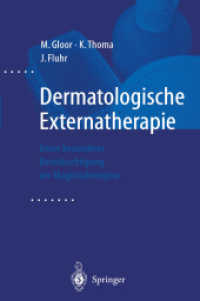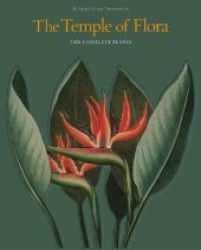Full Description
This collection spotlights the diachronic dimensions of the linguistic landscape, the importance of exploring temporal dissonances in historical events in order to better understand semiotic, political, and social transformations across different communities over the last century.
The volume seeks to expand the current borders of linguistic landscape (LL) research by situating the analysis of signs in the LL within their time-space organization, which has been understudied in existing scholarship. The book, featuring chapters from established and emerging scholars, argues that a focus on the historicity of the city text can reveal unique insights into the role of semiotic processes as precursors and support mechanisms for political and social changes. The collection is structured around different temporal clusters and geographic contexts across the globe where shorter and longer waves of politically driven resemioticization can be most sharply observed - post-colonial communities; post-communist societies; and recent and current sociopolitical upheavals. Taken together, the volume proposes a kaleidoscope view of the complex temporalities that underpin multimodal discourses in contested public spaces, offering new directions for LL research.
This book will be of interest to students and scholars in sociolinguistics, discourse analysis, semiotics, visual anthropology, and political science.
The Introduction and Chapter 8 of this book is freely available as a downloadable Open Access PDF at http://www.taylorfrancis.com under a Creative Commons Attribution-Non Commercial-No Derivatives (CC-BYNC-ND) 4.0 license.
Contents
List of figures
List of tables
List of contributors
Introduction (Isabelle Buchstaller, Małgorzata Fabiszak, Melody Ann Ross)
Part I: Post-colonial transitions in the LL
1. Plantations, place-naming, and the contested afterlife of slavery (Derek H. Alderman)
2. The spatial politics of the commemorative street names of Hong Kong (Wenchuan Huang)
3. Multilingualism for whom in Rwanda? The nexus of power and practices (Tove Rosendal)
4. Politics in the linguistic landscape of Dili, Timor-Leste (Melody Ann Ross)
5. A tale of two cities: Recycling history through discourses of identity, nostalgia, and heritage (Rani Rubdy)
6. Timespace discontinuity in the LL - the case of two slavery sites in Ghana (Stefania Tufi, Robert Blackwood and Jemima Asabea Anderson)
Part II: Post-communist transformations of the LL
7. Murals as a carrier of change: The transformative power of a street art festival in a small Bulgarian village (Patryk Borowiak)
8. Commemorative street naming practices in the border towns Frankfurt (Oder) / Słubice (Małgorzata Fabiszak, Isabelle Buchstaller, Anna Weronika Brzezińska, and Seraphim Alvanides)
9. Street name plates as a mirror of compromised decommunization: The influence of lower-level urban actors on the linguistic streetscape in Ukraine (Oleksiy Gnatiuk and Anatoliy Melnychuk)
10. The walls of peril: Belligerent symbolics of post-war murals in Bosnia-Herzegovina (Maida Kosatica)
Part III: Current contestations in and of the LL
11. The Tree of Life synagogue shooting in Pittsburgh: Linguistic landscape, document, and poetic autoethnography analyses (David I. Hanauer)
12. Stonewall was a riot!: Politics in Cologne's Pride (Hannah Sawall)
13. Semiotic assemblages in the linguistic landscape of protest in Venezuela (Jessica Velásquez Urribarrí)
14. Code choice, humour, intertextuality, and the expression of emotions in the linguistic landscape of the women's protest in Poland 2020-2021 vs. the 1980s (Michał Wasilewski)
15. Production of representational spaces as the political construction of "New Turkey": Re/naming public spaces after the coup attempt (Ece Yoltay)
Index








